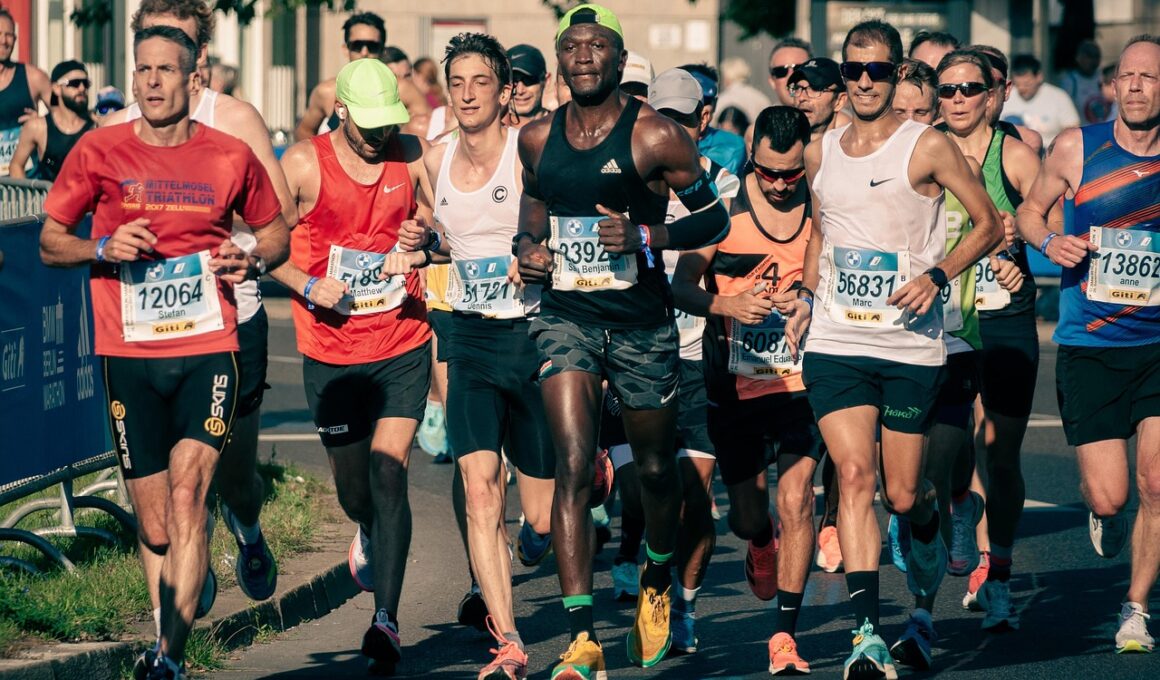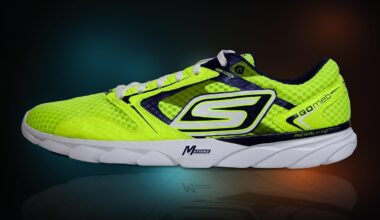The Effect of Sleep Extension on Performance and Recovery in Endurance Athletes
In recent years, the significance of sleep in athletic performance, particularly among endurance athletes, has garnered increasing attention. Research indicates that adequate sleep plays a crucial role in optimizing physical performance and enhancing recovery after strenuous training sessions. A central focus of numerous studies is the examination of sleep duration and its correlation with various performance metrics, including endurance, speed, and reaction time. Endurance athletes, in particular, are known to have higher sleep needs due to the physical demands of their training regimens. This need for extended sleep time becomes even more pronounced during periods of intense training, where the body requires sufficient rest to recover and adapt. Additionally, inadequate sleep can lead to a decline in cognitive function, which is essential for maintaining focus and strategy during competitions. Athletes often report improved mood and motivation with better sleep patterns. The findings underscore the necessity for athletes to prioritize sleep as part of their training regimen, ensuring optimum performance outcomes. Overall, the relationship between sleep extension and athletic performance continues to be an important area for ongoing research and exploration.
Sleep Duration and Athletic Performance
Several studies have analyzed how sleep duration affects performance in endurance athletes, revealing compelling results. Research consistently shows that even minor alterations in sleep duration can significantly influence performance outcomes. For instance, a study demonstrated that extending sleep by just an hour or two led to marked improvements in sprint times and overall endurance capabilities among athletes. Participants who increased their sleep duration reported higher energy levels and enhanced reaction times during physical tasks. These findings suggest that the sleep-extension approach can be beneficial in preparing athletes for competition. Conversely, sleep deprivation can lead to fatigue, decreased motivation, and diminished physiological capabilities. In one notable study involving marathon runners, those who added additional hours of sleep experienced improved completion times and reduced perceived exertion during their runs. Notably, the enhanced sleep quality correlated with better heart rate variability, a crucial indicator of recovery. Such findings advocate for athletes to develop personalized sleep strategies tailored to their training schedules to maximize their performance potential. Emphasizing sleep as a critical element of training can foster improvements in overall athletic success.
In addition to performance advantages, sleep extension promotes faster recovery in endurance athletes. Sufficient sleep has been linked to various physiological processes that are essential for recovery, such as muscle repair and glycogen replenishment. When athletes sleep more, their bodies release growth hormone, which plays a significant role in recovery. Research indicates that athletes who extend their sleep duration tend to recover faster from muscle fatigue and soreness. This is particularly important during intensive training cycles when the risk of overuse injuries increases. Furthermore, quality sleep enhances immune function, reducing the likelihood of illness that can hamper training efforts. Athletes have reported improved subjective experiences with faster recovery times following sleep extension. They often describe their readiness for subsequent training sessions in positive terms, which is critical for maintaining training consistency. Studies also illustrate that athletes with better sleep quality tend to have lower levels of stress and anxiety. This psychological aspect cannot be overlooked, as mental recovery contributes to overall athletic performance. Therefore, prioritizing adequate sleep helps endurance athletes sustain high levels of performance while minimizing the adverse effects of fatigue.
In addition to physiological improvements, extended sleep has notable cognitive benefits, which are vital for endurance athletes competing in events that require strategic planning and decision-making. Evidence indicates that athletes who obtain sufficient sleep exhibit enhanced focus, reaction times, and situational awareness, especially during high-stakes competitions. For example, a well-rested athlete is more likely to make quick, effective decisions, critical in competitive settings where seconds matter. Additionally, studies have shown that athletes with better sleep patterns experience reduced levels of fatigue and distraction during competitions. These factors contribute to overall improvements in racing tactics and pacing. Cognitive benefits associated with sleep can also influence training, as athletes can better absorb and implement instructional feedback. The integration of technical and tactical skills in endurance sports can vastly improve with adequate rest. Furthermore, sleep extension may facilitate creativity and problem-solving abilities, both essential components in the dynamic landscape of competitive sports. Overall, the intersection of sleep, cognition, and performance underscores the multifaceted role that sleep plays in enhancing the endurance athlete’s competitive edge and strategic capabilities.
Implementing effective sleep strategies requires a thorough understanding of individual needs and schedules. Each athlete can face unique challenges concerning sleep; therefore, personalized approaches can yield the most favorable outcomes. Common recommendations often include establishing a consistent sleep routine, creating a conducive sleeping environment, and utilizing relaxation techniques before bedtime. Moreover, athletes should also consider factors such as nutrition and hydration, which can impact sleep quality. Reducing daytime napping and managing caffeine intake can also play significant roles in enhancing sleep duration. To develop effective sleep strategies, athletes may benefit from collaborating with sports scientists or sleep specialists. This professional guidance can provide tailored recommendations based on performance goals and specific challenges faced during the training period. Furthermore, keeping a sleep diary can help identify patterns and potential areas of improvement. Awareness of sleep habits is the first step toward making positive changes. By prioritizing sleep, athletes can lay the groundwork for their best performances while ensuring optimal recovery between training sessions.
Recommendations for Sleep Hygiene Practices
To further enhance the quality of sleep, endurance athletes should adapt and incorporate specific sleep hygiene practices into their routines. Improved sleep hygiene can facilitate better sleep quality, which translates to improved recovery and performance. One critical recommendation is to create an optimal sleeping environment that minimizes disturbances. Factors such as light, temperature, and noise levels contribute to sleep quality and, consequently, resting efficiency. Athletes should strive to maintain a dark, cool, and quiet bedroom. Furthermore, they should adopt a regular sleep schedule by going to bed and waking up at the same times daily, including weekends. During the hours leading up to sleep, reducing exposure to screens and blue light becomes essential. Studies have shown that electronics used before bedtime can delay sleep onset and disrupt sleep quality. Instead of screen time, incorporating relaxation techniques, such as meditation or light stretching, can facilitate a smoother transition to sleep. Physical exercise in the earlier parts of the day also contributes positively to sleep duration and quality. Thus, adopting these practices can significantly benefits endurance athletes.
In conclusion, the evidence supporting the importance of sleep extension for performance and recovery in endurance athletes is undeniable. Increased sleep duration correlates with enhanced performance metrics and accelerated recovery processes, influencing both physical and cognitive capabilities. For athletes striving for excellence, prioritizing adequate sleep should be integral to their training regimen. By embracing sleep extension practices tailored to individual needs, athletes can unleash their full potential. While challenges such as demanding training schedules and travel may disrupt sleep, proactive planning and expert guidance can mitigate these effects. Moreover, implementing sleep hygiene practices can create a conducive environment for quality rest. As research continues to evolve, the relationship between sleep and performance will undoubtedly yield further insights to refine training methods and strategies. Ultimately, integrating sleep as a core component of athletic training can lead to significant success on the competitive stage, transforming endurance athletes into their best-performing selves. Therefore, it becomes imperative for both athletes and coaches to recognize and prioritize this critical aspect of training for a bright future in endurance sports.





